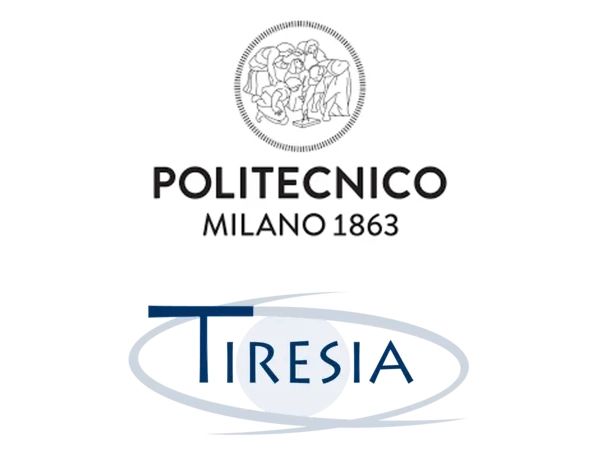Boosting Digitalisation and Data strategies in the social economy, a two-day event in Turin to explore digitalisation strategies and data for good!

On April 7th and 8th, the first Transnational Workshop of the DO Impact Project was held at Cottino Social Impact Campusin Turin, Italy.
More than 80 participants coming from 14 countries and representing social economy enabling organisations, companies and other entities were present at the event.
The first day focused on the essential steps for developing an effective digitalisation approach. Samuele Saccagno, Business Analyst at Fondazione Piemonte Innova, introduced a five-step methodology used by the entity for supporting the development of a Digitalisation Strategy. Starting from the Awareness activities, which is the first step to generate trust within an organisation, its employees and ensure their knowledge of the benefits of digital solutions and how they support the development and competitiveness of an entity. Then, it is important to carry out an Assessment of the digital maturity level of the organisation to better understand gaps and needs within the entity (there are different initiatives at European level that support this assessment: European Digital Innovation Hubs, Enterprise Europe Network, Clusters). The next step is Planning, meaning, defining specific actions to be carry out, designing a digitalisation Roadmap that can be implemented and identify opportunities, key exchanges, stakeholders, and technology providers to support the digitalisation path. This takes towards the implementation, which should follow the roadmap and activate the specific actions defined within it. As a transversal step, there is the Monitoring activities, in order to measure the impact of the actions and the changes within the organisation. This activity includes Key Performance Indicators (KPIs), evaluate impact, and identify areas for improvement.
The session continued with insights from Alessandro Portinaro and Luca Scolfaro of Fondazione LINKS, who presented an overview of the relationship between data and the social economy. Their talk explored how data, both quantitative and qualitative, can be used to frame and support the digital transformation of the social economy at the European level.
They offered reflections on how to manage this transformation effectively, taking into account the complexity of social economy ecosystems, institutional frameworks and territorial governance models. The presentation also addressed the impact of digitalisation on social economy organisations, highlighting how different types of organisations are affected and sharing best practices from various local contexts.
The second sessions explored how enabling organisations can strengthen support for the digital transformation of the social economy. Starting with a best practice on how the mapping of specific type of organisations (I.e. social economy enabling organisation) can support the ecosystems and the communities in which we live. Italia non profit, shared an interesting example: they mapped over 318,000 non-profit organisations, using data, digital tools, and an agile approach, with the aim to a) increase the number of donations of the organisations (time, money, resources), b) make the organizations locally popular, c) increase the number of transparent organisations.
During the session, Luca Cipriani (from Italia non-profit) also shared the methodology approach and digital tools used to organise and menage the work team and the mapping, them including Slack, Notion, Jira, Github and Figma.
The day closed with an inspiring session on local player experiences, moderated by Raffaella Scalisi – Torino Social Impact. Christian Racca (from TOP-IX Consortium) and Stefania Coni (from Fondazione CRT) shared examples and best practices from Impact Deal, an European data-driven acceleration program for enterprises creating social and environmental impact. The key message from them focused on the value and importance of Data for achieving and growing social impact: quality data, appropriate tools and systems as well as skills to handle data. The speakers also emphasised that economic resources and human resources end a bridge position to build a collaborative ecosystem, and that it is needed to experiment with collaboration models. Dialogica Lab and Cooperativa Social Interactive shared their experience with digitalization processes and organizational changes, following their participation in Evoluzioni, a program funded by Fondazione Compagnia di San Paolo and Fondazione Cariplo.
The second day of the DO Impact First Transnational Event focused on a key question for enabling organisations: How can data become a strategic tool to support the social economy?
Through workshops, case studies, and direct exchanges with experts, participants explored governance models, ethical approaches, and collaborative data-sharing strategies under the broader theme of Data for Good.
Federico Bartolomucci, TIRESIA Polimi, led an interactive workshop exploring the fundamentals of data and various sharing models: open data, data collaboratives, and data ecosystems. He emphasised the importance of a critical and human-centred approach to data, underlining that data is not neutral: it represents people, choices, and social dynamics. As he reminded participants:
“Data is the strongest driver for global change. Business enterprises know this very well. It is mandatory for enabling organizations to be able to manage data too.”
Bartolomucci also invited participants to reflect on the interpretative power they hold: behind every dataset there are decisions about what to observe, how to classify, and what stories to tell. Without context and reflection, data risks becoming meaningless.
Ron Salaj, ImpactSkills, offered an ethical and strategic lens on data collection, underlining the importance of digital capabilities for organisations working in complex and evolving environments. He started talking about the role of data in a multifaceted social and political context, then underlying the difference between data, information and knowledge and the path form literacy to competences.
Xavier Trabado Farré, Third Sector Platform of Catalonia,concluded the session with a case study showcasing how data can strengthen cross-sector collaboration and enhance impact generation. SimbioTIC, the name of the project, will provide support and resources for the adoption of a specific CRM to more than eighty social entities, also promoting the improvement of this software, so that it will be able to adapt to the needs of third sector organizations.
Being the first Transnational Workshop, it also was the moment to launch DO Impact’s Capacity building Programme developed for Social economy enabling organisations from all over Europe. The complete path, consisting of 8 transnational workshops in person and online, was presented by the partners. Check the next Transnational Workshops here.
If you want to explore more materials from the event,










